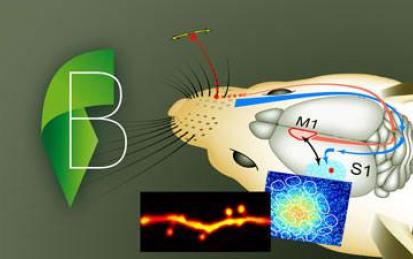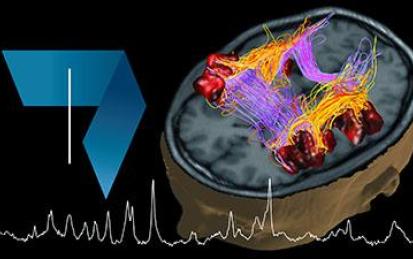

Our Courses

Applying Health Coaching in Patient Care
Learn essential coaching techniques to assist patients with behavior and lifestyle modifications.
-
Course by

-
 Self Paced
Self Paced
-
 80
80
-
 English
English

Essentials of Lifestyle Medicine and Population Health
Define the essential components of healthcare systems, and make the argument for why healthcare delivery models based on these foundational principles are essential to addressing our healthcare crisis.
-
Course by

-
 Self Paced
Self Paced
-
 60
60
-
 English
English

Population Health: Disease Prevention and Management
Identify key socio-economic and cultural determinants of population health outcomes, analyze the impact of socio-cultural factors on access to health care and adjust health promotions and interventions accordingly.
-
Course by

-
 Self Paced
Self Paced
-
 80
80
-
 English
English

U.S. Healthcare Systems
Examine the structure and delivery of the U.S. healthcare system and its impact on population health outcomes, and comparative analysis.
-
Course by

-
 Self Paced
Self Paced
-
 80
80
-
 English
English

Fundamentals of Advocacy in Health Policy
Examine a variety of methods of advocacy and discover how health policies are developed, adopted and implemented.
-
Course by

-
 Self Paced
Self Paced
-
 100
100
-
 English
English

Leading Organizational Change in Healthcare
Learn how to apply change management processes within a healthcare organization.
-
Course by

-
 Self Paced
Self Paced
-
 100
100
-
 English
English

Abnormal Psychology
A study of abnormal human behaviors within the diversity of human behavior. Using a Biopsychosocial framework and the DSM-5, the categories of abnormal behavior are explored with explicit consideration to cultural and biological diversity. Students who successfully complete the course will demonstrate their understanding of how physical, psychological, and social factors influence human behavior; the techniques used to identify psychological disorders; and the practical applications of treatment for abnormal behavior.
-
Course by

-
 Self Paced
Self Paced
-
 20 hours
20 hours
-
 English
English

Computational Neuroscience: Neuronal Dynamics of Cognition
This course explains the mathematical and computational models that are used in the field of theoretical neuroscience to analyze the collective dynamics of thousands of interacting neurons.
-
Course by

-
 Self Paced
Self Paced
-
 25
25
-
 English
English

Cellular Mechanisms of Brain Function
This course aims for a mechanistic description of mammalian brain function at the level of individual nerve cells and their synaptic interactions.
-
Course by

-
 Self Paced
Self Paced
-
 18
18
-
 English
English

Cement Chemistry and Sustainable Cementitious Materials
Learn the basics of cement chemistry and laboratory best practices for assessment of its key properties.
-
Course by

-
 Self Paced
Self Paced
-
 English
English

Selected Topics on Discrete Choice
Discrete choice models are used extensively in many disciplines where it is important to predict human behavior at a disaggregate level. This course is a follow up of the online course “Introduction to Discrete Choice Models”. We have selected some important advanced topics, that are presented in detail.
-
Course by

-
 Self Paced
Self Paced
-
 22
22
-
 English
English

Space Mission Design and Operations
Learn the concepts used in the design of space missions, manned or unmanned, and operations, based on the professional experience of the lecturer.
-
Course by

-
 Self Paced
Self Paced
-
 18
18
-
 English
English

Fundamentals of Biomedical Imaging: Magnetic Resonance Imaging (MRI)
Learn about magnetic resonance, from the physical principles of Nuclear Magnetic Resonance (NMR) to the basic concepts of image reconstruction (MRI).
-
Course by

-
 Self Paced
Self Paced
-
 18
18
-
 English
English


IoT Systems and Industrial Applications with Design Thinking
The first MOOC to provide a comprehensive introduction to Internet of Things (IoT) including the fundamental business aspects needed to define IoT related products.
-
Course by

-
 Self Paced
Self Paced
-
 25
25
-
 English
English

The Multi-scale brain
This course explores the latest data, models,and techniques for investigating the different levels of the brain. Find new insights and derive new theories.
-
Course by

-
 Self Paced
Self Paced
-
 90
90
-
 English
English

Neuroscience Reconstructed: Genetics and Development
This course will cover the basic concepts in neurogenetics; introduce the fields of genomics, transcriptomics, translatomics; classical and cutting-edge experimental approaches; and how integrative simulation can be used to derive biological meaning from genetics data and build bridges from genetics all the way to behaviour.
-
Course by

-
 Self Paced
Self Paced
-
 35
35
-
 English
English

Introduction to Astrophysics
Learn about the physical phenomena at play in astronomical objects and link theoretical predictions to observations.
-
Course by

-
 Self Paced
Self Paced
-
 18
18
-
 English
English

Plasma Physics: Applications
Learn about plasma applications from nuclear fusion powering the sun, to making integrated circuits, to generating electricity.
-
Course by

-
 Self Paced
Self Paced
-
 25
25
-
 English
English

Plasma Physics: Introduction
Learn the basics of plasma, one of the fundamental states of matter, and the different types of models usedto describe it, including fluid and kinetic.
-
Course by

-
 Self Paced
Self Paced
-
 88
88
-
 English
English

Cavity Quantum Optomechanics
Fundamentals of optomechanics. Basic principles, recent developments and applications.
-
Course by

-
 Self Paced
Self Paced
-
 49
49
-
 English
English

The Radio Sky I: Science and Observations
Be captivated by the exotic objects that populate the Radio Sky and gain a solid understanding of their physics and the fundamental techniques we use to observe them.
-
Course by

-
 Self Paced
Self Paced
-
 33
33
-
 English
English

Advanced statistical physics
We explore statistical physics in both classical and open quantum systems. Additionally, we will cover probabilistic data analysis that is extremely useful in many applications.
-
Course by

-
 Self Paced
Self Paced
-
 72
72
-
 English
English

Synchrotrons and X-Ray Free Electron Lasers (part 1)
The first MOOC to provide an extensive introduction to synchrotron and XFEL facilities and associated techniques.
-
Course by

-
 Self Paced
Self Paced
-
 144
144
-
 English
English

A Resilient Future: Science and Technology for Disaster Risk Reduction
Discover how science and technology help us reduce disaster risk and increase resilience.
-
Course by

-
 Self Paced
Self Paced
-
 36
36
-
 English
English



